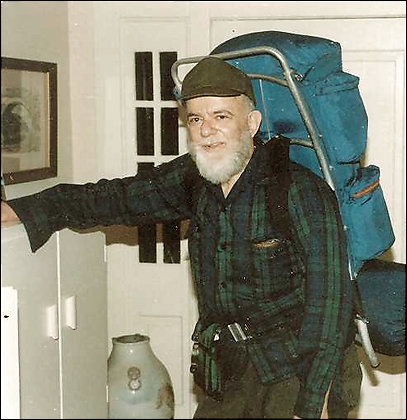Today’s post is written by Dr. Greg Bradsher and is a continuation of yesterday’s post.
On October 31, 1984, Leonard retired from the National Archives and the next day began turning over to Jim Hutson copies of all the documents he had collected. For the next fifteen months, in his 1952 DeSoto, Leonard traveled the same ground he had in the 1950s and 1960s. He revisited all the state archives and all the state historical societies and most of the other major repositories in the original thirteen states and Vermont. He went to some places he had not previously visited.
The result of the project was the publication in 1987 of Supplement to Max Farrand’s The Records of the Federal Convention of 1787.
It was around that time I told Leonard that in a report I had written I had been forced to cite him as the exception to the rule. In 1986, while working in the Planning and Policy Evaluation Branch, I was given the assignment of contacting a dozen or so archival institutions to obtain information about their “clean research room” policies. The National Archives and Records Administration was in the process of writing its regulations and wanted to be able to respond to any criticisms, particularly from Congress, that its policies were not that much different from the state institutions. So I made the calls. One of the questions I asked was whether researchers were allowed in the stacks. The response was always the same: no. But some institutions qualified their response by indicating they had made an exception for Leonard. Thus, as I informed him, he had become an asterisk in my report, wherein I explained he had been the exception to rule. He just smiled.
From 1989 until 1993, Leonard made five solitary walks across the British Isles. He bedded down at night in a sleeping bag he carried on his back. Upon returning home after one of these hikes, he told me that while plodding along the English countryside he had been listening to a transistor radio and heard a question raised about whether Elvis Presley’s gravestone at Graceland was copyrighted. So he changed course and headed for the small town with the radio station that had broadcast the Elvis question. Not long afterward, he was on the air, entertaining the listeners with tales of Elvis. I doubt that Leonard ever met Elvis, but who knows; his sister, Hilda, lived for a while in Memphis.
Leonard is no longer with us, having passed away five years ago, at age 95. I miss his good sense, humanity, kindness, humor, and intellect. I feel privileged to have known him and trust these posts will prompt younger colleagues to read some of his works, all of which are entertaining, informative, and thought provoking. A good starting point is his luncheon address of October 16, 1987, entitled “From Maine to Georgia with Camper and Camera,” that can be found in Constitutional Issue and Archives.

